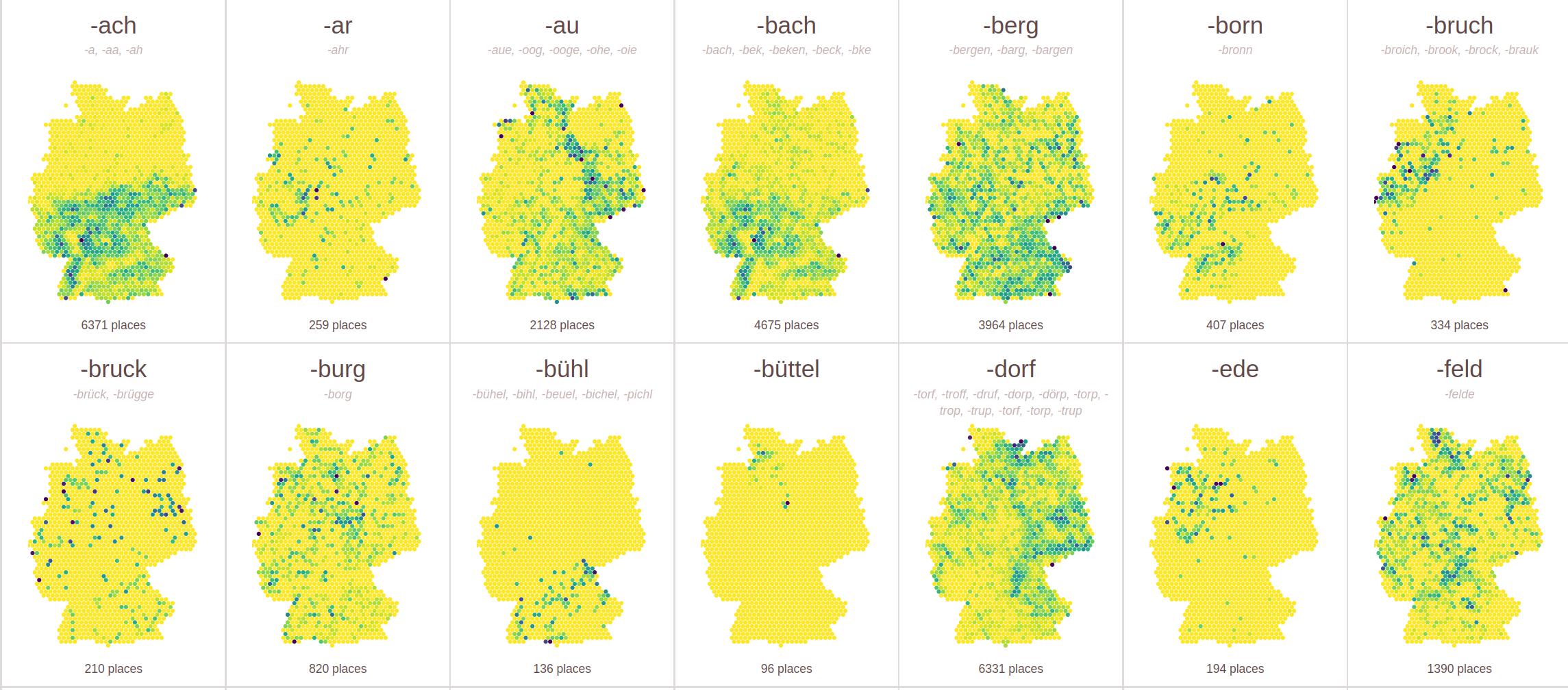-itz and -ow are mostly exclusive to the east cuz its used mostly by Slavic Settlements. Just if someone else wondered
YUROP
A laid back community for good news, pictures and general discussions among people living in Europe.
Other European communities
Other casual communities:
Language communities
Cities
Countries
- [email protected]
- [email protected]
- [email protected]
- [email protected]
- [email protected]
- https://feddit.dk
- [email protected] / [email protected]
- [email protected]
- https://lemmy.eus/
- [email protected]
- [email protected]
- https://foros.fediverso.gal/
- [email protected]
- [email protected]
- Italy: [email protected]
- [email protected]
- [email protected]
- [email protected]
- [email protected]
- Poland: [email protected]
- [email protected]
- [email protected]
- [email protected]
- [email protected]
- [email protected]
- [email protected]
- [email protected]
What about -furt? I reckon there's a handful.
If you follow the link and scroll down a bit, you'll find more, including -furt.
The -ach and -bach are interesting. Are there no rivers in the north?
It looks like -au basically traces the Elbe basin, so I assume that that ending took over in that area for some reason
It might be -beek and -bek, due to Lower Saxon (Plattdeutsch) influence. -bruch/-bruck and -brück might also be relevant.
Not might, it is this. -bruch, -bruck and -brück are something different though. While being related to the english "brook", a Bruch is swampland. -bruck or -brück however indicate a bridge (like the German word for bridge, Brücke).
Though "bridge" can also refer to a board walk through swampland...
Ach.
Is -au originally Germanic or Slavic (as in German/Polish cognates such as Krakau/Krakow)?
The German -au Wikipedia article (https://de.wikipedia.org/wiki/-au) says it is of Germanic origin. It's meaning apparently is either wet meadow, running waters or holm.
-a is missing.
